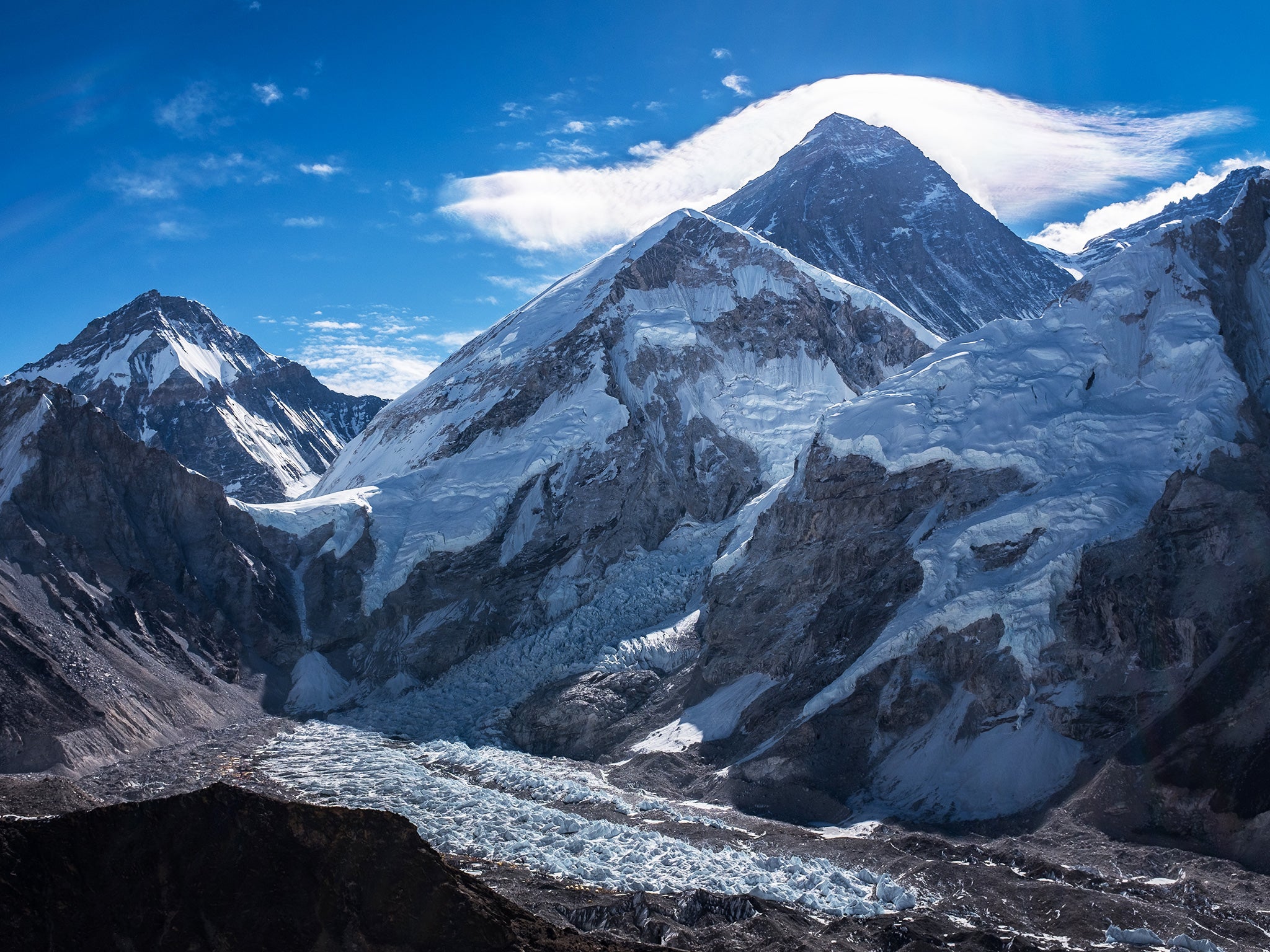Mount Everest: Third climber in three days dies descending summit
The deaths have raised questions about safety standards of treks up the world's tallest mountain

Your support helps us to tell the story
From reproductive rights to climate change to Big Tech, The Independent is on the ground when the story is developing. Whether it's investigating the financials of Elon Musk's pro-Trump PAC or producing our latest documentary, 'The A Word', which shines a light on the American women fighting for reproductive rights, we know how important it is to parse out the facts from the messaging.
At such a critical moment in US history, we need reporters on the ground. Your donation allows us to keep sending journalists to speak to both sides of the story.
The Independent is trusted by Americans across the entire political spectrum. And unlike many other quality news outlets, we choose not to lock Americans out of our reporting and analysis with paywalls. We believe quality journalism should be available to everyone, paid for by those who can afford it.
Your support makes all the difference.An Indian person has died on Mount Everest, to become the third fatality in as many days on the world's tallest mountain.
Subash Paul, 43, had scaled the mountain on Saturday but died the following day because of exhaustion, according to Wangchu Sherpa of the Trekking Camp Nepal company.
Two other people have also died on the mountain in the last few days, apparently from altitude sickness.
Eric Arnold, 35, had bottled oxygen with him, but complained of feeling weak and died on Friday night before he was able to get to a lower altitude.
Dr Maria Strydom, a 34-year-old finance lecturer at Monash University, died while descending from the summit on Saturday.
An experienced climber, Dr Strydom apparently sought to climb the mountain with her husband, Robert Gropel, to prove vegans were not “weak”.
"It seems that people have this warped idea of vegans being malnourished and weak," Dr Strydom had said in a university interview. "By climbing the seven summits we want to prove that vegans can do anything and more."
An expedition is now being arranged to retrieve the bodies of the climbers.
The news comes as 30 people are reported to have become sick or frostbitten on Mount Everest over the weekend. Pemba Sherpa of the Seven Summit Treks agency in Kathmandu said an Indian climber who was unable to move due to frostbite had been carried to a lower camp, where attempts were being made to pick her up by helicopter.
Two Indian climbers have also been reported missing. Paresh Nath and Goutam Ghosh were last seen on Saturday.
The unfortunate sequence of events has raised questions about safety standards of Everest trekking companies, as some cut-price local companies compete for business as international outfits have scaled back operations.
"Many climbers without any experience crowd Everest every year, and companies often use poor quality equipment... offering cheap packages to clients who are exposed to security risks," said Nepal Mountaineering Association Chief, Ang Tshering Sherpa.
He added: "Climbers with well-managed companies employing experienced guides are safe."
Hiking representatives blame the government, which charges $11,000 for each Everest permit, for failing to spend any money on safety measures. The government collected $3.1 million from the permit fees of 289 climbers so far this year.
But government officials blame inadequate preparation on the part of climbers.
"The deaths were not due to accident or the crowd," Tourism Department official Sudarshan Dhakal said. "Energy loss and altitude sickness mean that they were not well prepared."
Good weather over the past two weeks has allowed more than 350 climbers to reach the summit this month from the Nepali side of Everest and several people climbed from Tibet.
Join our commenting forum
Join thought-provoking conversations, follow other Independent readers and see their replies
Comments